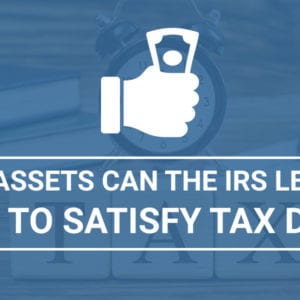In January 2018, the IRS implemented more aggressive collection measures for people with what it described as “seriously delinquent” tax debts. This change, which applies to those who owe over $52,000, appeared as part of the Fixing America’s Surface Transportation (FAST) Act, can result in revocation of your passport. According to CBS News, the State […]
Blog
Can You Go to Jail for Not Paying Your Taxes?
One of the most common questions we receive is, “Can you go to jail for not paying taxes?’” While jail is not the default consequence for unpaid taxes, it is possible. Most famously, on October 17, 1931, Judge James H. Wilkerson sentenced Chicago gangster Al Capone to 11 years in federal prison for income tax […]
How Will A Government Shutdown Affect My NJ Tax Refund?
From December 22, 2018, until January 25, 2019, the U.S. federal government was partially shut down. Now that it’s ended, the leading question for many New Jersey residents seems to be “When will I get my tax refund?” The Internal Revenue Service (IRS) was among the government agencies impacted by the closure. It retained approximately […]
Every State’s Most Googled Tax Topics
Tax law is by far one of the most complex facets of US law. In fact, the US tax code runs over 2,000 pages in length. To make matters more complicated, laws and regulations are constantly changing year over year and state tax laws vary greatly from state to state. Failing to properly understand tax […]
What Assets Can the IRS Legally Seize to Satisfy Tax Debt?
If you have just received a notice from the Internal Revenue Service (IRS) stating that they intend to enact a tax levy, you’re going to be alarmed. Your biggest questions will likely be “Can they actually do this?” and “What can they take?” The answer to the first question is “Yes.” When you owe back […]






